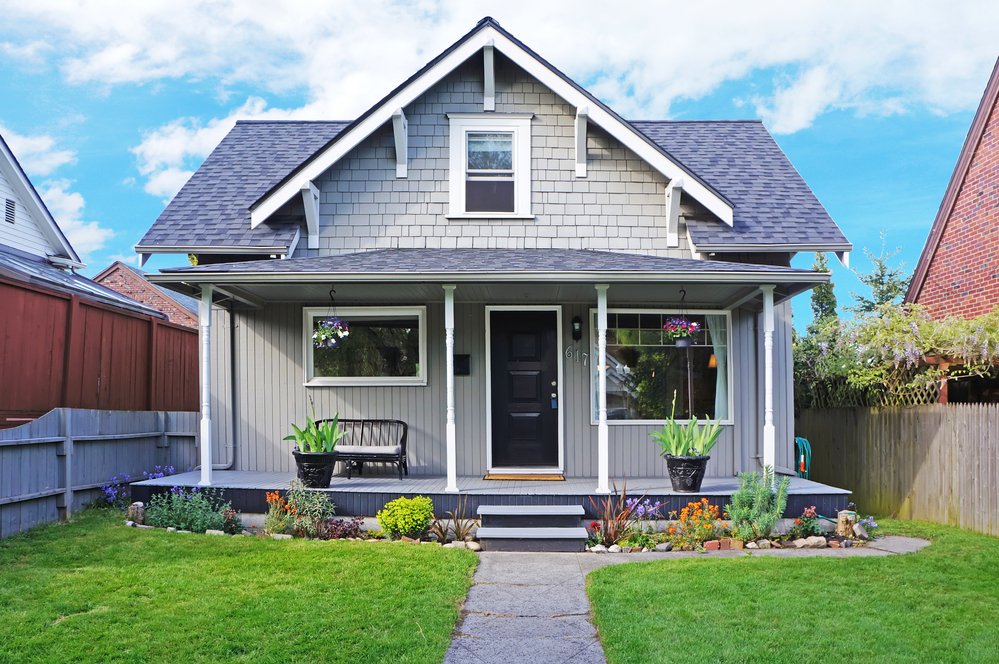Understanding Mortgage Loan Options for Low-Income Disabled Individuals
/While everyone seeks a place that feels like home, for those with disabilities, the right home can mean autonomy, safety, and dignity. This guide provides practical mortgage loan information for low-income disabled people. It details federal and localized resources, specialized loan programs, and crucial considerations.
Benefits of Mortgage Loans for Low-Income Disabled People
For many disabled individuals, the design and layout of a home are essential for daily living. Owning a home tailored to one's specific needs can dramatically improve quality of life.
Accessibility Needs
Disabled individuals may require ramps instead of stairs, wider doorways for wheelchair accessibility, lower countertops, or specialized bathroom fixtures. These modifications can be costly and challenging in rental spaces where structural changes are often prohibited.
Safety Considerations
Features such as non-slip flooring, reinforced railings, and emergency alert systems can help ensure a safer living environment. Homeownership allows individuals to install these critical features without needing landlord approval.
Economic Perspective
While the initial investment in an accessible home might be significant, it can lead to long-term savings. In rental properties, frequent moves and continual rent hikes can strain budgets, whereas owning a home offers more financial predictability.
Emotional and Psychological Benefits
Owning a home that caters to one's needs promotes a sense of independence, security, and pride. Disabled individuals, like everyone else, benefit from spaces that feel their own, enhancing emotional well-being.
Federal Programs for Mortgage Loans for Low-Income Disabled Individuals
The U.S. government recognizes the housing challenges faced by low-income disabled individuals and offers various federal programs to assist in homeownership.
Homeownership & Opportunity for People Everywhere (HOPE I)
The HOPE I program primarily focuses on aiding low-income families to become homeowners. It achieves this by allocating funds to Public Housing Agencies (PHAs). These agencies then use the resources to assist families in purchasing the public housing units they already occupy. To benefit from this initiative, potential homeowners need to be current public housing residents, satisfying certain income benchmarks.
The specific criteria vary, as local PHAs might introduce additional conditions for residents aiming to buy their units.
Federal Housing Administration (FHA) Loans
The FHA loans program, backed by the Federal Housing Administration's insurance, presents a viable mortgage option for many. By insuring these loans, the FHA diminishes the lending risk, paving the way for lenders to cater to a wider demographic. This means even those with modest credit scores or constrained down payments can access loans.
Especially for disabled individuals who often grapple with tight finances, FHA loans—with their competitive interest rates and forgiving credit requirements—emerge as an attractive choice. To secure an FHA loan, applicants must engage with an FHA-endorsed lender, furnish requisite financial details, and fulfill other stipulations as mandated by both the FHA and the lender.
Section 504 Home Repair Program
Operated by the U.S. Department of Agriculture (USDA), the Section 504 Home Repair program provides a lifeline for very low-income homeowners aiming to modernize or rectify health and safety issues in their homes. It's especially invaluable for disabled individuals, facilitating alterations that make their residences more accessible.
To qualify, one must possess (or hold a long-term lease for) and inhabit the house, demonstrate an inability to secure credit from alternate sources, and have a family income falling below 50% of the area's median.
Tapping into these federal channels, low-income disabled individuals stand a better chance at realizing their homeownership dreams.
Local and State Programs for Mortgages for Low-Income Disabled People
While federal initiatives provide a foundational layer of support for prospective homeowners, there are also local and state resources available.
State Initiatives and Their Benefits
These avenues, tailored to the unique housing landscapes of different regions, often bridge the gaps that national programs might overlook. Whether it's through offering down payment assistance, granting property tax exemptions, or providing low-interest loans for the disabled, the resources vary from one state to another.
A good starting point for discovering these offerings would be to research state housing authorities or consult the local Department of Housing and Community Development.
Local Community Resources and Partnerships
Beyond the state level, local communities also play a pivotal role in the housing sector. Counties and municipalities frequently introduce their own strategies to bolster homeownership among vulnerable groups, ranging from housing lotteries to property discounts or even renovation grants.
Engaging with local community centers, disability advocacy groups, or housing coalitions can often shed light on these beneficial programs.
Non-profit organizations often enter into strategic partnerships with local governments to address the complexities of housing. These collaborations can result in exclusive homeownership opportunities or specialized assistance programs.
With knowledge of regional housing markets and the needs of the communities, local community programs can provide personalized support, guidance, and resources for potential homeowners.
Specialized Loan Programs for Low-Income Disabled Homebuyers
Non-profit organizations often offer assistance. For example, Habitat for Humanity, renowned globally for its housing initiatives, occasionally develops projects that cater to individuals with disabilities. Their homes are not only affordable but are also designed to be accessible and functional.
The National Council on Independent Living also has resources and partnerships with financial institutions that understand the nuances of lending to individuals with disabilities. These partnerships often result in mortgage products that have reduced interest rates or down payment assistance, aimed at easing the financial burden on disabled homebuyers.
Additionally, credit unions and local banks sometimes offer loan products tailored for those with disabilities. These might come with extended repayment periods, lower initial payments, or additional flexibility in case of financial hardships.
Preparation To Apply for a Mortgage
For low-income disabled individuals, the mortgage application process can seem daunting. However, with proper preparation and an understanding of key considerations, the journey can be smoother.
Advance Knowledge
It's important to familiarize oneself with the specific requirements and details of the desired mortgage program. Whether federal, state, or local, each initiative will have its set of qualifications and conditions. Knowing them in advance reduces the chances of hiccups later on.
Credit Health
A strong credit score can be instrumental in securing favorable mortgage terms, even with programs designed for low-income individuals. Regularly reviewing one's credit report, rectifying errors, and working towards improving the score can yield long-term benefits.
Counseling and Guidance
Many programs, especially those tailored for low-income or disabled individuals, offer pre-purchase counseling. This can be invaluable in understanding the intricacies of the mortgage process, budgeting effectively, and preparing for homeownership responsibilities.
Accurate Documentation
Ensuring all necessary documents – from proof of income to medical certifications verifying disability – are accurate and readily available can expedite the application process. It's essential to be organized and meticulous in this aspect.
Personalized Assistance
Given the unique challenges disabled individuals might face, seeking specialized assistance can be beneficial. Some organizations offer dedicated services to help disabled individuals navigate the homeownership path, providing advice and support.
Other Considerations When Purchasing a Home
Low-income disabled individuals should consider the other associated costs and benefits of homeownership.
Down Payment
Some non-traditional mortgage programs might lower down payment requirements or offer assistance programs that can subsidize or eliminate this initial cost.
Property Taxes
Depending on the location and the nature of the disability, homeowners might qualify for property tax reductions or exemptions.
Maintenance and Repairs
Unlike renters, homeowners are responsible for all maintenance and repairs. It's crucial to be aware of this responsibility and to identify resources or services that provide accessible solutions for home repair. This includes understanding warranties on appliances, locating local contractors or services familiar with accessibility modifications, and setting aside funds for unexpected repairs.
Finding the Right Mortgage Loans for Low-Income Disabled Individuals
Homeownership is about empowerment, stability, and crafting a space uniquely suited to an individual's needs. For low-income disabled individuals, this journey can have challenges, but with the right mortgage loan option, the dream is within reach.
It's vital to remain informed, and proactive, and to lean on community and specialized organizations for assistance. The rewards of homeownership are worth the effort. Learn more about the home-buying process for low-income people and take that transformative step towards your dream home.












